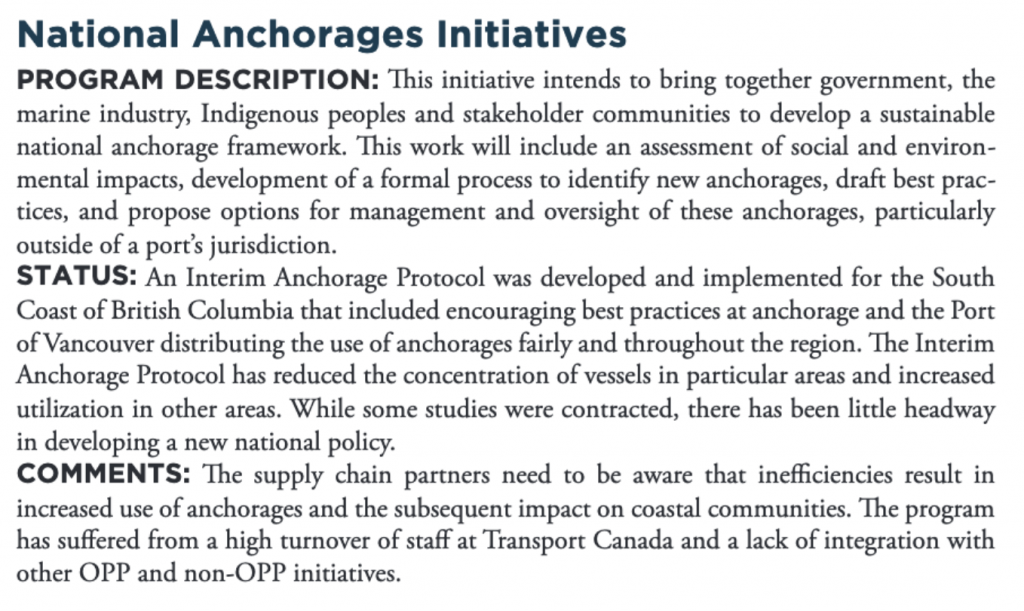The leading voice for the shipping industry in Canada just panned Transport Canada’s plan to deal with freighter anchorages. The Chamber of Shipping issued a “report card” this week on Canada’s Oceans Protection Plan (OPP) which was launched in 2016. The OPP is a broad collection of programs designed to assure Canadians that Canada has the expertise and resources to keep our oceans safe from harm.
The report card evaluated each of the OPP’s programs on 6 criteria:
Does it improve marine safety, protect ecosystems, and develop Indigenous partnerships? Is it backed by strong evidence, supported with enough resources and helping marine trade?
For the National Anchorages Initiative, the answer was “no” in every case.
The chamber made specific reference to the concerns First Nations and other residents of the Southern Gulf Islands Region have been voicing for years, saying that: “Supply chain partners need to be aware that inefficiencies result in increased use of anchorages and the subsequent impact on coastal communities.” As coastal community groups have pointed out, that impact includes increased noise, light and air pollution, damage to local marine life due to anchor chains scouring the sea bed and the threat of a major fuel spill.

The report card goes on to say that Transport Canada’s plan to address anchorages “has suffered from high turnover of staff…and a lack of integration with other OPP and non-OPP Initiatives.” This observation echoes concerns expressed by the South Coast Ship Watch Alliance (SCSWA), a collection of coastal community groups responsible for the nofreighteranchorages.ca campaign.
“When it comes to knowing what research and studies the federal government is doing and where things stand with all the promised communication and consultation, we’ve been left completely in the dark for most of this year,” says campaign coordinator Chris Straw. “Despite the fact that Transport Canada has been at this for more than two years, we have yet to see any measurable reduction in the use of our local waterways as an industrial parking lot.”

The Chamber of Shipping’s overall assessment of the OPP credits Ottawa with having made “significant strides in delivering certain infrastructure that will increase safety in coastal waters.” But is also makes it clear there is much more work to be done to “optimize the effectiveness of the supply chain.” Among other things, they’re calling for “increased funding and the allocation of departmental resources to collect and disseminate supply chain data…”
SCSWA and other local governments and organizations have asked Transport Canada to lead a complete review of all the data and related factors that could explain why the Port of Vancouver is unable to accommodate bulk cargo ships inside its operation. They need to understand why these ships are spending so much time idling at anchor in the Southern Gulf Islands. The goal is to get the ships out of the fragile Gulf Islands ecosystems and away from coastal communities where they don’t belong.

If you want to add your voice to the conversation and tell Ottawa that this mess needs to be cleaned up, please take a moment to send a letter to the Transport Minister and the other Ministers responsible.
You can read the excerpt from the report on the National Anchorages Initiative below:



